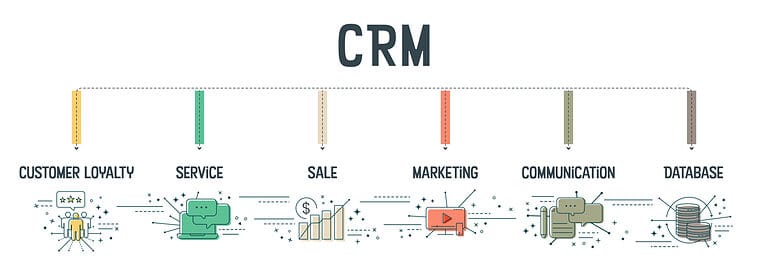Revolutionizing Your Numbers: How Generative AI Will Change Sales Dynamics
How will generative AI recast the role of sales teams and redefine customer engagements? This article cuts through the noise to show you the immediate and future impacts on sales strategies, leveraging real-world scenarios to demonstrate how generative AI is driving efficiency and personalization. Without overhyping or technical overload, get ready to see the practical side of this AI revolution in sales, and learn “how generative AI will change sales” for the better.
Key Takeaways
Generative AI has the potential to revolutionize sales by offering personalized recommendations, enhancing efficiency, and significantly improving customer interactions through tailored messaging and sentiment analysis.
The application of generative AI allows sales teams to save time by automating routine tasks such as data entry, lead scoring, and generating accurate sales forecasts, which can streamline the sales process and focus on strategic actions.
While generative AI can transform sales dynamics, challenges such as data accuracy, securing executive buy-in, achieving optimal human-AI collaboration, and managing costs versus ROI must be addressed for successful implementation.
Understanding Generative AI and Its Impact on Sales

Generative AI, a form of artificial intelligence, is capable of generating new data by recognizing existing patterns. Think of it as an AI artist, painting a picture based on the style of the masters. For sales professionals, this could mean a revolutionary change in how they operate, offering a significant competitive advantage.
With generative AI’s ability to provide organizations with in-depth insights and personalized recommendations, sales teams can enhance efficiency, reduce costs, and uphold or enhance customer service. These advancements in AI-for-sales solutions have the potential to transform customer relationships and offer a significant competitive advantage.
What is Generative AI?
So, what exactly is generative AI? It’s an artificial intelligence algorithm that can:
Produce new data based on existing patterns
Go beyond pattern recognition and data analysis
Create new information, similar to how an artist creates new artwork based on inspiration from existing art forms.
Generative AI utilizes neural networks to understand underlying patterns in datasets, allowing it to generate new samples that resemble the existing data. This ability to create new data can bring significant benefits to a sales organization by providing insights and automating various tasks, thus revolutionizing the sales industry.
How Generative AI Applies to Sales
Having discussed the concept of generative AI, we can now explore its application in sales. Generative AI has the capability to analyze sales data to identify potential risks and unexplored opportunities. This helps sales professionals, including sales managers, to receive tailored recommendations on which potential clients to engage with and why.
One practical application of AI in sales is in prospecting and lead prioritization. AI can analyze historical usage patterns and maintenance records to anticipate customer needs. It can also prioritize leads by evaluating the likelihood of deals closing, thereby assisting sales reps in focusing their efforts more efficiently.
Enhancing Customer Interactions with Generative AI

Moving forward in our exploration of generative AI in sales, we shift our focus to customer interactions. Generative AI can significantly enhance customer interactions by enabling personalized messaging and sentiment analysis through natural language processing.
Imagine a scenario where every customer you interact with feels understood and valued, not because you’ve spent hours researching their habits and preferences, but because your AI tool has done it for you. With generative AI, this is not a mere dream but a reality that sales leaders are increasingly embracing to improve their team’s performance and enhance customer experience.
Personalized Messaging
Personalized messaging isn’t a novel concept in sales. However, the application of generative AI takes this concept to a new level. It can analyze customer behavior, preferences, and demographics to create content and messaging that resonate with each customer on a more personalized basis.
This personalized approach is not limited to just a handful of customers. Generative AI can produce tailored email campaigns and create personalized emails on a large scale, thereby enhancing customer engagement and improving sales performance.
Sentiment Analysis
Sentiment analysis represents another potent utilization of generative AI in sales. By analyzing customer feedback and automatically evaluating the sentiment of sales call transcripts, generative AI can provide a deeper understanding of customer emotions, thereby enabling sales teams to adapt their strategies accordingly.
The use of sentiment analysis in sales can result in improved customer experience and potentially higher sales conversions. Several AI tools commonly employed for sentiment analysis in sales include:
Hitech
MonkeyLearn
Lexalytics
BrandWatch
Social Searcher
MeaningCloud
Streamlining the Sales Process with Generative AI

Having observed how generative AI can elevate customer interactions, it’s time to examine its role in streamlining the sales process. Generative AI can enhance efficiency by automating various tasks such as scanning emails to input prospects’ contact details into CRM systems, identifying potential risks, and offering insights to improve sales performance.
But that’s not all. Generative AI can escalate sales enablement by refining response management and processes like handling RFP responses and crafting effective sales battlecards for the competitive landscape.
Automating Data Entry and Analysis
One of the key applications of generative AI in sales is in automating data entry and analysis. Generative AI can handle CRM tasks such as data entry, lead scoring, and opportunity tracking, thereby saving time and improving efficiency.
AI tools, also known as ai sales tools, commonly used to automate data entry and analysis in sales include:
Docsumo
UiPath
Amazon Textract
Google Doc AI
Nintex RPA
Grooper
ABBYY Flexicapture
By incorporating sales automation, sales teams can focus more on strategic responsibilities and less on routine tasks.
Smart Lead Generation
Lead generation is a crucial part of the sales process. Generative AI can play a significant role in enhancing smart lead generation by improving content creation and boosting engagement and conversion rates.
Additionally, generative AI can automate and optimize different aspects of the lead generation process, including:
Identifying and qualifying leads
Personalizing outreach and communication
Predicting customer behavior and preferences
Analyzing data to identify patterns and trends
Streamlining lead nurturing and follow-up processes
By leveraging generative AI, sales teams can focus only on the most promising leads, saving time and significantly improving the effectiveness of the sales process.
Accurate Sales Forecasting
Accurate sales forecasting is another area where generative AI can make a significant impact. By analyzing data, predicting trends, and prioritizing leads, generative AI can provide precise sales forecasts.
Generative AI models utilize deep learning algorithms and neural networks to analyze historical sales data, market trends, and external factors to generate precise sales forecasts. Such accurate forecasting can help sales teams work more efficiently and set more realistic expectations.
Generative AI and Sales Team Collaboration

Generative AI’s influence extends beyond individual sales reps or the sales process – it can also notably strengthen sales team collaboration. By providing assistance to sales representatives and promoting cross-team collaboration, generative AI can:
Boost efficiency
Improve performance
Enhance communication
Facilitate knowledge sharing
Across sales teams, the sales manager plays a crucial role in driving success by implementing effective sales processes, utilizing sales technology, and employing sales tools.
Imagine a sales team where everyone is on the same page, where insights are shared seamlessly, and where decisions are made based on comprehensive, real-time data. That’s the power of generative AI in fostering cross-team collaboration.
Assisting Sales Reps
Sales reps can greatly benefit from the capabilities of generative AI. By streamlining tasks and offering valuable insights, generative AI can enhance their performance, thereby improving efficiency and effectiveness throughout the sales cycle.
Generative AI, powered by machine learning, can automate tasks such as:
Crafting personalized emails at scale
Providing real-time coaching
Scoring leads
Entering new customer information
Handling other repetitive and time-consuming tasks
This allows sales reps to focus more on strategic responsibilities and less on routine tasks.
Facilitating Cross-Team Collaboration
Generative AI can also significantly enhance cross-team collaboration. By utilizing a range of data sources, including emails, calls, and customer touchpoints, generative AI can improve communication tools and expedite decision-making processes.
Generative AI can:
Transform team communication
Enhance collaboration
Expedite decision-making
Mitigate creative blocks
Improve task and workflow management
Boost engagement
Foster innovation
Reshape organizational dynamics
This ultimately results in more efficient and high-performing sales teams.
Overcoming Challenges in Implementing Generative AI for Sales

Despite the promise of generative AI, implementing it in sales is not without its challenges. Some of the obstacles that can impede the integration of generative AI in sales include:
Ensuring data accuracy
Securing executive buy-in
Integrating AI into existing workflows
Adapting to new tools and processes
These challenges need to be addressed in order to successfully implement generative AI in sales.
Despite these challenges, the benefits and ROI of generative AI in sales justify the implementation costs for most executives. Generative AI has been credited for enhancing the efficiency of product and service design, driving sales, and reducing costs, thus outweighing the initial investment in the technology.
Balancing Human and AI Interactions
One of the challenges in implementing AI in sales is maintaining a balance between AI and human interactions. While AI-driven automation can improve efficiency and offer insights, it is the human element that strengthens customer relationships and personalized service.
Achieving the optimal balance between AI and human interaction requires:
Setting clear boundaries
Providing appropriate training for sales teams to effectively integrate artificial and human intelligence
Maintaining ethical standards with human oversight of AI training.
Ensuring Data Quality
Data quality is another crucial factor in the successful implementation of generative AI in sales. High-quality data ensures well-trained AI models that can provide reliable predictions and generate logical responses.
Companies can ensure high-quality data by cleaning and preprocessing the data to eliminate irrelevant or noisy content. Establishing clear goals and investing in high-quality data are vital measures to elevate generative AI from a novelty to a significant driver of success in sales.
Managing Costs and ROI
The costs of implementing generative AI in sales can be significant, ranging from $20,000 to $100,000 depending on the selected foundation model and the specific approach taken for implementation. Despite these costs, the benefits and ROI of generative AI in sales do indeed justify the implementation costs.
By conducting a comprehensive assessment that includes measuring financial ROI, analyzing gains in comparison to costs, and evaluating nonfinancial benefits such as obtaining a competitive advantage, companies can understand the potential benefits and costs associated with the technology.
Real-World Examples of Generative AI in Sales
To gain a comprehensive understanding of generative AI’s impact on sales, we should examine some real-world examples. Generative AI has been effectively employed in sales by:
Transforming team communication
Analyzing sales data
Assisting in lead research
Integrating with tools such as chatbots to support cross-functional collaborations.
These examples demonstrate the potential of generative AI in enhancing the efficiency of product and service design, driving sales while reducing costs, and ultimately, providing a significant competitive advantage.
Summary
In conclusion, Generative AI has the potential to revolutionize the sales industry by enhancing customer interactions, streamlining the sales process, fostering sales team collaboration, and overcoming implementation challenges. With its ability to generate new data, provide personalized messaging, conduct sentiment analysis, automate data entry, enable smart lead generation, and provide accurate sales forecasting, generative AI is a game-changer in the world of sales. As we continue to explore its potential, we look forward to an exciting future where sales teams can leverage the power of generative AI to drive efficiency, effectiveness, and competitive advantage.
Frequently Asked Questions
How does generative AI affect sales?
Generative AI can significantly improve sales efficiency by analyzing data, identifying patterns, and indicating promising leads, as well as creating copy and making recommendations for quick-win deals. This can ultimately generate more pipeline and revenue.
How generative AI will change marketing?
Generative AI will change marketing by enabling personalized recommendations, targeted advertising, and interactive experiences based on customer behavior and preferences. It also allows for the rapid generation of response-ready product concepts and better analysis of competitor moves and consumer sentiment, leading to improved efficiency and accelerated time to market.
Will sales be replaced by AI?
AI in sales will not replace salespeople entirely, but will enhance their work and productivity. Human sales skills, such as storytelling and relationship building, will remain critical for success.
What is AI sales?
AI in sales refers to the use of artificial intelligence to simplify and optimize sales processes. It involves using software tools with trainable algorithms to process large datasets and help teams save time and sell more efficiently.
What is generative AI?
Generative AI is an algorithm that can create new data by learning from existing patterns. It’s a form of artificial intelligence.




